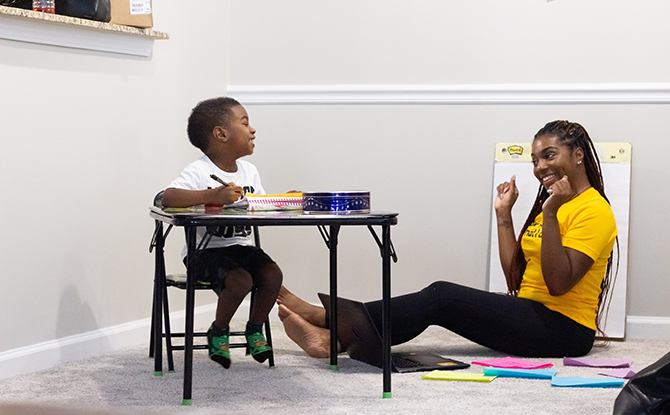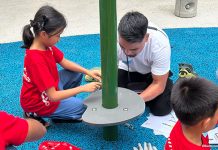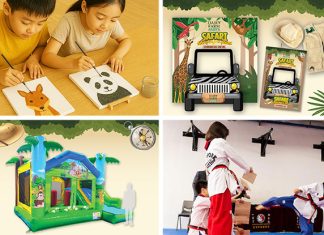
Children’s financial education is essential to their development since it paves the way for their future stability and financial literacy. As such, it is important for parents to consider how to teach kids about money.
When you teach children about money, they learn how to manage their finances, appreciate the worth of money, and make wise judgments about how much to spend and save. This helps them to develop good money habits and gets them ready to make smart financial choices as adults.
Children can learn about money through a combination of verbal instruction, practical application, and hands-on learning. This includes educating kids about the value of money, showing them how to earn and save money, and guiding them through the fundamentals of financial management.
Tips on How to Teach Kids About Money
With some thought put into how to teach kids about money, parents can make the lessons memorable. Children who learn about money in a way that is interesting and exciting will be able to better absorb the lessons and be set up for success in the future.
DINO-TASTIC EXHIBITION: Meet a 40m Long Dino Face-to-Face
Enjoy $600 Off: 1:1 Lessons Tailored to Your Child's Needs
REGISTER EARLY AND SAVE UP TO $400: English Classes for N1 to Secondary
It is crucial to begin by describing what money is and how it functions. Children can learn about currency and its uses. They should also learn how to count money.
By doing this, children will be better able to attribute value to money and make wise decisions when it comes to spending it.
2. Distinguish between Needs and Wants
Children should learn about money by distinguishing wants from needs. Teach them the difference between what are essentials that are needed versus nice-to-haves.
Children should be made aware of their limited resources and the need to budget their money wisely in order to ensure that their basic necessities are met. This will help them establish good financial habits and make informed spending decisions rather than simply wanting to spend on anything that their impulses tell them to.
3. Start Small
When teaching children about money, teaching the names of different coins and their respective values is an important step in understanding the concept of money.
Start by sorting and counting coins. This can help kids develop their foundational numeracy skills.
If you are planning an upcoming holiday, you can also use this opportunity to share about different currencies. They can learn about different currencies and how they can differ in value across countries.
4. Use Resources like Books and Other Materials
Parents and caregivers can teach children about money using a variety of materials. Books, websites, and educational programmes are some examples of these resources. Parents may make sure that their kids get a thorough and well-rounded education on money by looking into these resources and figuring out which ones work best for their children.
5. Let Them Experience Earning Money
Earning money helps children understand it better. Parents can provide children with opportunities to earn money by giving them age-appropriate chores or even helping them to start and run a small business. Such experiences earning money help children to appreciate the hard work needed and also to taste its rewards.
Parents can give children a set allowance for completing chores. By breaking down the earning process into smaller, more manageable steps, children can gain a better understanding of how money works.
6. Start the Saving Habit
Teach kids about saving a portion of what they receive. Show them the value of saving and make it visible. This could be as simple as picking up a piggy bank for them to put away any left over cash they may have from doing chores around the home.
7. Introduce Budgeting and Money Management
Budgeting and management of money are important skills that children should learn at an early age. Parents need to explain the importance of budgeting and money management and how it can help them in their adult lives. Tracking spending and savings help children learn to budget. This will teach children healthy money practices for adulthood.
Involve them in appropriate family money management decisions as well. This can be a good way to teach children about money. Help your kids learn the value of informed financial decisions and involve them in family financial decisions.
8. Introduce the Concept of Investing
No, we’re not suggesting that kids be introduced to stocks and the share market from an early age. Instead, you can share with them in simple concepts about investments – and this need not necessarily need to be in financial terms. Instead, for example, you can share that when they read, they are “investing” in themselves and their knowledge. This is to bring across the concept that what they put into something can yield a greater payback in the future.
Have Fun Teaching Kids About Money
In conclusion, it is necessary to teach children about money as it is a crucial aspect of their development and lays the foundation for their future financial literacy and stability. By understanding the basics of money, emphasizing the difference between wants and needs, teaching about budgeting and money management, and involving children in making such decisions, children can develop good financial habits and make informed financial decisions in their adult lives.
To make sure that children continue to grow and learn about money, it’s important to stress how important it is to keep learning and teaching them about the management of money.
Teaching children about money is a lifelong process, but it’s important to start early. By starting early, children can develop good financial habits and decision-making skills that will serve them well as they grow up.

























